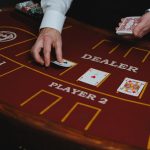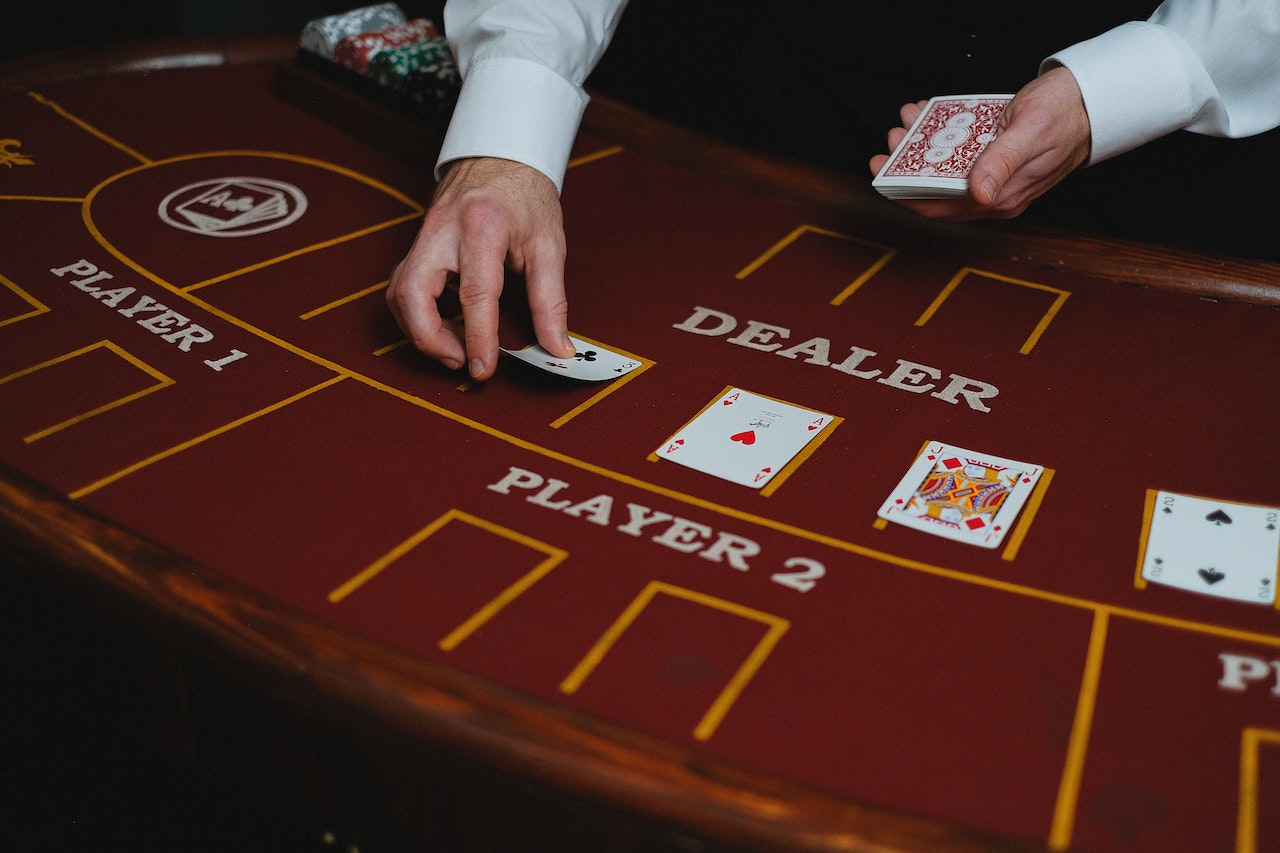Gambling, defined as placing something of value on an outcome determined by chance, can involve anything from betting on football games to purchasing scratchcards.
Pathological gambling affects approximately 0.4-1.6% of Americans, typically beginning during adolescence or young adulthood.
It’s a game of chance
Gambling is an activity in which individuals risk something of value (usually money) on an event with uncertain outcomes with the aim of winning additional money or materials from it. Gambling activities range from betting on sports events, auto racing, horse races, political elections and reality TV contests through to dice, keno bingo machines and slot machines; though all involve some degree of chance rather than skill.
Some individuals develop psychological addiction to gambling and will risk their lives to keep playing – even if that means forgoing food and shelter to continue gambling. In such instances, treatment should be sought; however, most gamblers don’t become addicted and can play responsibly – however many don’t understand that winning at games of chance are often low, leading them to overspend which often results in debts being accrued as a result of overspending.
Gambling may or may not be legal in different countries, depending on state and federal laws which determine which forms of gambling are allowed and banned as well as the amount a player can wager and what percentage of total pot they can win.
While some may relish the thrill of gambling, it is important to remember that all forms of gambling involve significant risk. Some will win big while most will likely go down in defeat – this is why understanding its risks and how to gamble responsibly are so essential. Avoid common mistakes often made by gamblers by treating gambling as entertainment rather than as an attempt at making money, in this way controlling spending habits and your gambling habit will become easier to manage. There are various online casinos that are mentioned on Yoakim Bridge review website, which offer various games such as video poker, roulette, craps and blackjack if you prefer real money gambling – these may include video poker, roulette craps blackjack.
It’s a form of entertainment
Gambling is a form of entertainment which involves betting something of value – such as money or material goods – on events with uncertain outcomes, often at great personal risk. Gambling has been popularly accepted for centuries by individuals across cultures; however, its harmful or addictive nature may become apparent over time. Gambling research has uncovered various false beliefs which contribute to making irrational decisions; as well as dysregulation in brain regions associated with reward and emotion processing such as the ventromedial prefrontal cortex and the striatum.
Gambling’s growing popularity reflects its ability to provide excitement and reward. But it’s important to remember that it can also be high-risk activity with little return. Before beginning gambling, consider how much time and energy you are willing to invest into the activity; otherwise it might be better off finding other forms of entertainment.
Gambling doesn’t just take place at casinos or betting shops – it takes many forms! Social gambling includes playing card games with friends for small amounts of money or joining a friendly sports betting pool. Other forms of gambling are bingo, slots machines and instant scratch tickets – some gamblers even make their living betting on events or specific games! Usually these professionals possess extensive knowledge about these specific games that allows them to consistently beat them using strategy and probability to maximize wins.
Gambling not only offers financial rewards, but it is often associated with physiological arousal: an increase in heart rate and elevated cortisol levels (Anderson & Brown 1984). Pavlovian processes may make environmental cues associated with this arousal into conditioned stimuli that lead to further stimulation, helping alleviate states such as boredom, anxiety or depression. Arousing may also provide relief from uncomfortable states like boredom. These factors can create a cycle in which gamblers continue betting despite negative expected values of their actions, often leading to serious financial and personal challenges. Gambling addiction has been recognized by the American Psychiatric Association and often stems from other conditions like mental health issues or substance abuse.
It’s a form of gambling
Gambling is an activity in which someone places something of value (usually money) at stake on an event with significant elements of chance that has the potential for producing large monetary returns. While gambling may provide entertainment and economic activity around the globe, its impacts can also be detrimental for some. Not only can its financial consequences have devastating results; gambling may also become psychologically addictive leading to additional issues and leading to additional difficulties.
There are various kinds of gambling activities available today, from roulette and bingo to poker, lotteries and sports events – each type can involve risk. No matter the form you take part in – legal or otherwise – it is essential to remember that all forms of gambling involve risk; while some people find gambling relaxing while others may struggle. No matter your decision whether it be for fun or investment reasons it’s crucial that all risks and rewards are carefully considered before making decisions about anything related to it.
Many people enjoy gambling as an enjoyable pastime, from buying lottery tickets or placing bets on horse races, to trying their luck at pokies. Unfortunately, however, some individuals can become vulnerable to compulsive or pathological gambling and it can have severe financial and social repercussions if left unchecked – it affects everyone! If you suspect compulsive or pathological gambling may be present in your life it’s essential that professional help be sought immediately –
Pathological gambling is a psychological condition characterized by an overwhelming urge to gamble, even when its negative repercussions threaten personal and social wellbeing. It can lead to severe emotional and social harm for its victim as well as accompanying impulse control disorders; also referred to as compulsive gambling or gambling disorder.
Some people have an innate tendency to gamble, without becoming addicted. If you believe you may be developing a gambling issue, take a self-assessment test to assess your level of gambling risk; seek help from GamCare if needed – ultimately it is best to stop before it becomes problematic!
It’s a form of addiction
Gambling is an addictive behavior that comes in various forms: casinos, sports betting, lotteries, online gambling – any form that allows an individual to relieve boredom through betting can become problematic and create serious difficulties within themselves and their families – straining relationships, leading to financial disaster, or leading to health complications.
Understanding the signs of gambling problems is important to effectively treating them, so you need to recognize their symptoms in order to seek treatment. Some symptoms could include feeling compelled to gamble, lying to family or hiding money from them about your gambling habits, or feeling an overwhelming urge to continue gambling even after losing large sums of money. A strong support network such as Gamblers Anonymous may be beneficial as well in helping overcome addiction and stay sober.
Research indicates that some people may inherit a genetic predisposition towards gambling disorders while others develop them due to stress or other factors. A history of trauma or abuse is also considered risk factor for gambling addiction; individuals with antisocial or impulsive personalities can also lead to this behavior, leading to gambling issues. Cognitive Behavioral Therapy can be effective treatment option.
These therapies aim to address cognitive distortions that keep you from betting rationally, such as believing you have more chances of winning than they actually do, or thinking certain rituals can increase your luck. Your therapist will teach you how to identify these distortions and change them during treatment.
Treatment for gambling disorder differs significantly from substance addiction by placing emphasis on financial assessment, such as cash and credit card control, debt resolution strategies and financial planning. This is important as gambling often leads to financial crises or bankruptcy and those with gambling addiction may even resort to criminal activities in order to finance their habit.
Scientists have discovered that gambling addiction activates similar brain pathways to drug and alcohol cravings, providing hope for developing future treatments for gambling dependency. At Imperial College London, researchers are studying ways to target these pathways so as to develop medications which could aid people struggling with gambling dependency.







